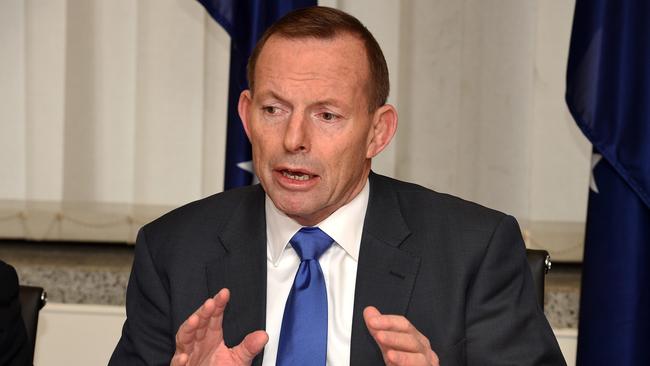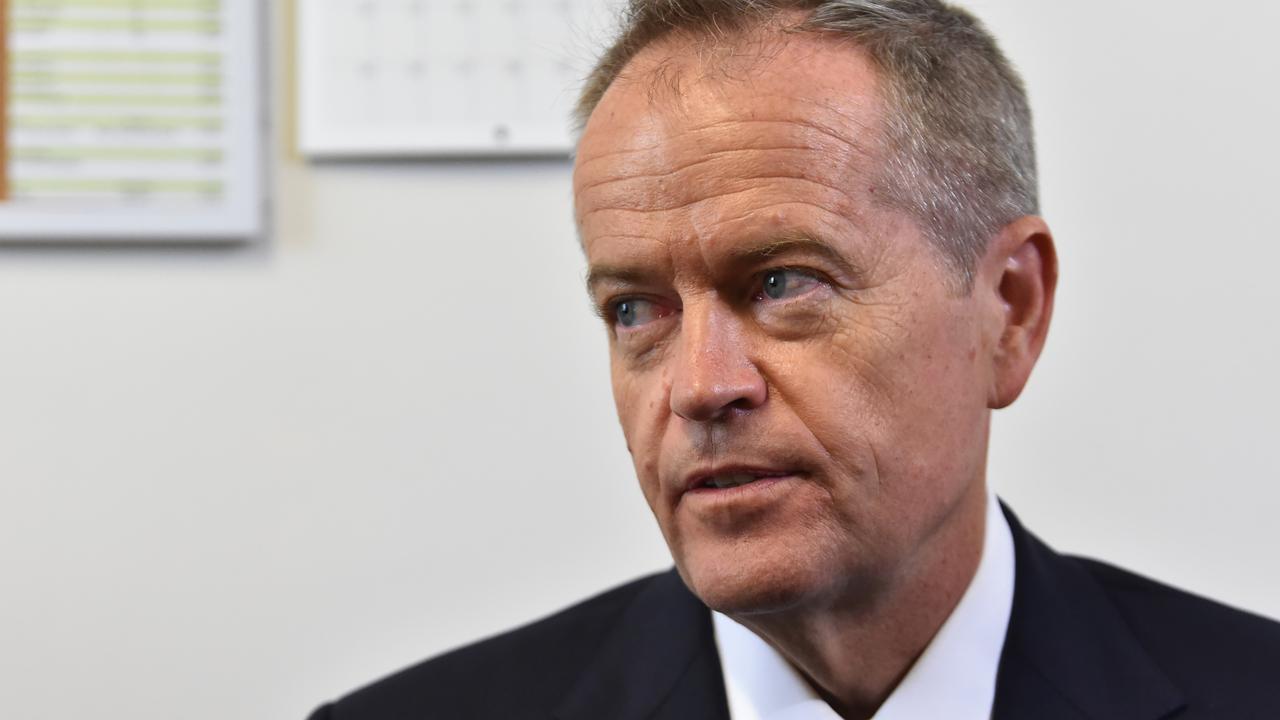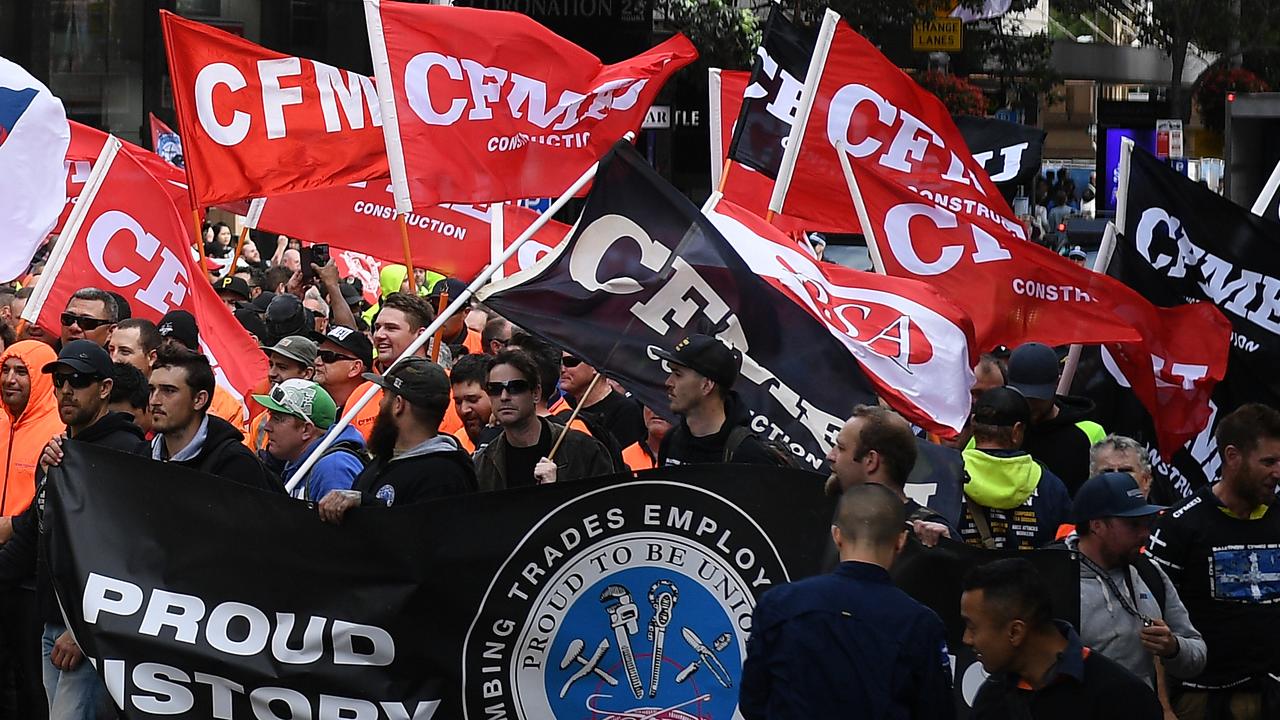Productivity Commission targets penalties in workplace reform
Tony Abbott makes vow after draft reform blueprint containing contentious overhaul of weekend penalty rates.

Tony Abbott has played down the prospect of sweeping industrial relations changes after the Productivity Commission released a draft reform blueprint containing an contentious overhaul of weekend penalty rates.
The Prime Minister provided an assurance he would not alter the industrial relations regime during this term of government and that any change would be taken to the next election to win a mandate.
He also provided clarification that any changes to penalty rates would need to be made by the industrial umpire and not government.
READ: Productivity Commission full report
“I want to absolutely stress that this is a draft report. It is a report to government, not a report from government,” Mr Abbott said.
“The Productivity Commission itself has said that people shouldn’t start ruling things in or ruling things out.”
“The interesting thing is that what the draft Productivity Commission report recommends is that penalty rates continue to be absolutely the preserve of the Fair Work Commission,” he said.
Employment Minister Eric Abetz noted the cautious approach taken by the Productivity Commission, saying it had proposed alterations to the existing system rather than a fundamental shake-up of the system.
“The Productivity Commission in their press release headed it “repair”, not “replace” which, of course, is very similar to that which we as a Coalition said before last election, namely, that any changes that we would look at would be within the Fair Work framework and we wouild simply work to improve on that which was already there.”
“Worse than Australian Workplace Agreements”
Unions have branded proposals in the Productivity Commission draft report on workplace relations “worse than Australian Workplace Agreements (AWAs) that were put in place under the former Coalition Government’s WorkChoices laws”.
A Productivity Commission blueprint to reform the workplace relations system has proposed a range of reforms to “repair” rather than “replace” the current system, including the creation of a new form of industrial agreement.
The Productivity Commission draft report into the workplace relations framework has proposed a new industrial instrument in the form of a statutory contract allowing a new way for small businesses to employ a group of workers.
Parroting Bill Shorten’s “bring it on” slogan , the Australian Council of Trade Unions said the report “confirms” the government’s industrial relations agenda.
The ACTU branded recommendations to overhaul penalty rates for some workers and slow the growth of the minimum wage “pay cuts” and vowed to “fight” the changes.
The hospitality workers union, United Voice, claimed the Commission’s suggestion to bring in a two-tier system of penalty rates amounted to “economic apartheid”.
David McElrea, assistant secretary of United Voice, said hospitality, entertainment and retail workers would be rendered “second class citizens” by cuts proposed to Sunday penalty rates and called for Tony Abbott to “immediately rule this out”.
“These are the biggest employers in the modern economy,” Mr McElrea said. “Many of these employees will be asking, ‘why am I a second-class citizen in my own country? What did I do wrong?’”
“Tony Abbott needs to come out and rule this out like he ruled out taxes on super. If not, we should all be fearful that this is Liberal Party Policy.”
“They’ll keep this in their back pocket. We know they want to reduce wages and weekend rates and we don’t trust them.”
Bid for workplace flexibility
The commission urges the government to consider so-called “enterprise contracts” which would be similar to the now defunct Australian Workplace Agreements, but cover a larger number of employers and allow small businesses to propose variations to the relevant award.
Productivity Chairman Peter Harris said it was a new model that would enable a small enterprise to “put forward a variation to an award structure based around a statutory contract” and lodge it with the industrial umpire.
“The enterprise contract is designed to meet a gap,” he said. “Enterprise bargaining is the province of medium and large sized firms and for organised labour because they are both well set up.”
The draft report contains more than 45 recommendations aimed at injecting greater flexibility into the workplace relations system including replacing the better-off-overall test, overhauling penalty rates and a fundamental reforming the structure of the industrial umpire
Mr Harris said the package of recommendations was aimed at “repairing” the current regime rather than any large scale replacement of it.
“We no longer see wage breakouts despite the biggest terms of trade shift in a century. Inflation is no longer inevitably driven by wage rises. If you become unemployed you are generally in unemployment for a shorter period than you were prior to the last 20 years,” he said.
“Job security ... is stable or improving not falling. There is more part time work,” he said. “Overall this adds up to, the system, in a broader sense, working reasonably well ... You would not throw the system out”.
The draft report proposes an overhaul the unfair dismissal system to ensure that an employee can only receive compensation when they have been dismissed without “reasonable evidence” of persistent underperformance.
Procedural errors made by employers in the dismissal process would not result in the reinstatement of workers or compensation for a former employee although the industrial umpire could impose a financial penalty on the employer.
The National Employment Standards would be changed to ensure that any new public holidays would not require the payment of penalty rates by employers.
A new mechanism in modern awards would also allow an employer and employee to substitute a public holiday for an alternative day to reduce costs during busy holiday periods.
Penalty rates, as revealed today by The Australian, would not be reduced for those in emergency services fields with Mr Harris saying there was “no case” for it.
However, the draft report says that Sunday rates should be drawn into line with Saturday rates for those in the hospitality, entertainment, retailing, restaurant and cafe industries which have warned that excessive weekend pay is costing them money or forcing them to close.
It is proposed that the better off overall test in enterprise agreements and individual flexibility arrangements be replaced with the more flexible no disadvantage test which takes a more holistic approach to judging the position of workers.
The commission also appears to have shifted its focus away from its proposal for a system of diverse minimum wages from state to state or region to region due to a lack of interest.
However, it proposes the industrial umpire have a reserve power to consider varying the minimum wage in particular sectors in exceptional economic circumstances like, for example, across a range of agricultural industries during a period extended drought.
It encourages the commission to move away from its four yearly review of the 122 modern awards and instead develop its own expertise in the area.
It recommends the industrial umpire become a more accountable institution, proposing a shake-up of the Fair Work Commission and new set terms for its commissioners.
The accountability of the industrial umpire has been an issue of concern to some industry and business groups including the Council of Small Business of Australia and the Australian Mines and Metals Association.
It is proposed the commission be split into two divisions. The Minimum Standards Division would have responsibility for the minimum wage and modern awards while the Tribunal Division would retain the umpire’s other functions.
New appointments of the President, Vice President, Deputy Presidents and Commissioners would be for five year terms with the prospect of reappointment at the end of the term subject to a performance review conducted by an independent panel.
The minister would select candidates from a shortlist, with appoints to be made by the Governor-General.
On enterprise bargaining, Mr Harris said that pattern bargaining could actually be useful and warned there was not much difference between “what is alleged to be an evil pattern bargain and the standard arrangement that might be used by an employer association or a union”.
It proposes the government overhaul the rules around greenfield agreements — workplace agreements which have to be secured with unions for major projects — so that, if a deal is not struck within three months, the industrial umpire can arbitrate the impasse.
The FWC would also be given new powers to “suspend or terminate industrial action” where it threatens to cause significant economic harm to the employer or the employees covered by the agreement rather than both parties as is currently the case.
ACTU Secretary Dave Oliver railed against the proposal to establish enterprise contracts and said the changes to penalty rates would create a two tier system that would strip entitlements away from workers.
“They (the Productivity Commission) are suggesting that our workers in the hospitality and retail sector should be treated differently to every other worker in this country and they should not be adequately compensated,” he said.
“Once again, they are suggesting a new form of enterprise contract or individual bargaining which has all the hall marks of what we saw under the Howard government’s work choices legislation,” he said.
Mr Oliver warned this would see employers pressuring workers to contract out of the safety net protections contained in the award system.
He warned the planned structural changes to the industrial umpire and proposal for five year terms risked the politicisation of the appointment process and argued it would undermine the independence of the Fair Work Commission.
“I actually think there’s elements of this that are worse than Work Choices, particularly the enterprise contract arrangements where they can make it a condition of employment to basically trade-off conditions that you currently have under the award,” he said.
He warned this amounted to a “wholesale contracting out of the safety net”.
Chief executive of the Australian Industry Group, Innes Willox, said the draft report laid the “groundwork for a community discussion about the shape of Australia’s workplace relations system”.
He warned the current regime was not delivering the adaptability and flexibility needed for modern workplaces and said it should be “carefully considered” rather than immediately ruled out.
“Underwhelming”
Head of the Council of Small Business of Australia Peter Strong said that the draft report was “underwhelming” but backed the proposals to restructure the industrial umpire to make it more accountable.
He also supported the planned two tiered penalty rate system, saying the demands upon emergency workers and those in front line health positions like nurses were far different to those in the hospitality or retail sectors.
“The penalty rates stuff, that is really quite good,” he said. “The consumer comes out on weekends. It’s very different from saving someone’s life.”
Mr Strong rejected arguments against a two-tiered penalty rate structure, saying there were already a range of different penalty rates in the award system from industry to industry.
While he welcomed the move towards enterprise contracts, he said a better solution for smaller operators would be the creation of a standard small business award.
“I was hoping they would come up with a plain English small business award. That would have been a really good thing,” he said. “But good on them for understanding an enterprise agreement is too expensive and too complex.”


